
Technology
00:57, 21-Apr-2019
China's Long March-3A rocket series completes its 100th launch
Updated
10:38, 24-Apr-2019
CGTN
00:29
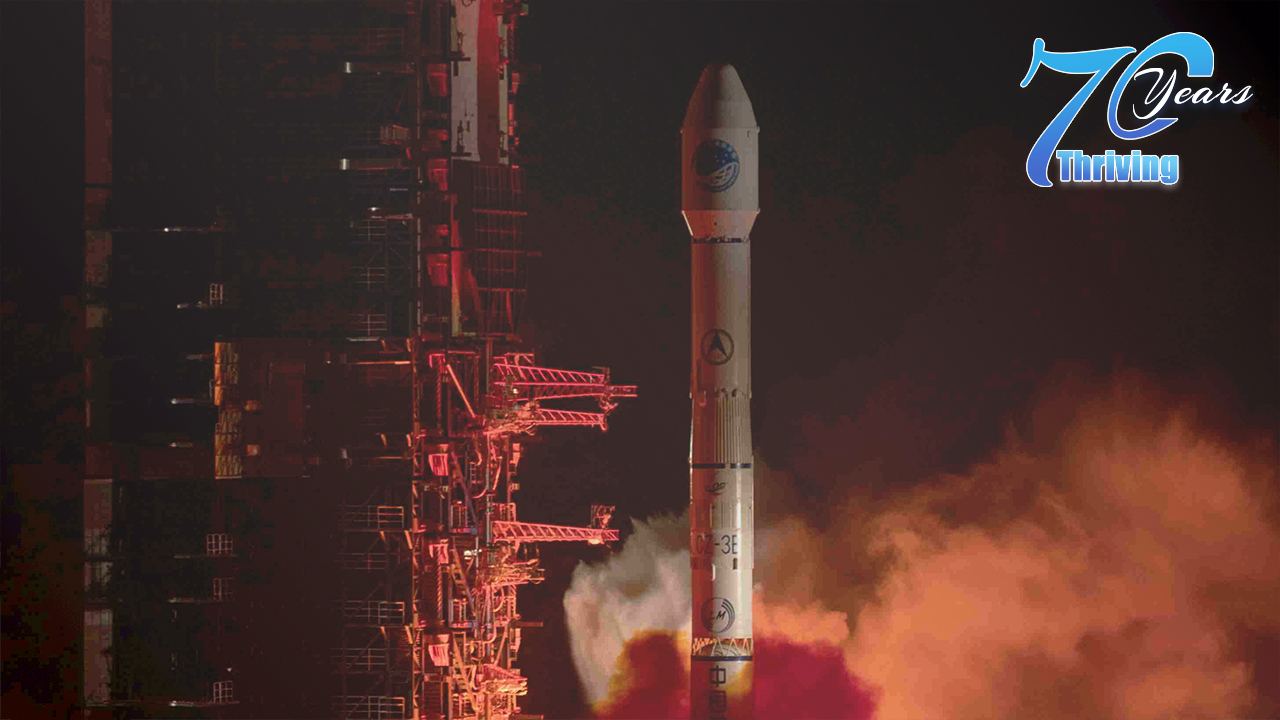
With a Long March-3B rocket putting a BeiDou-3 IGSO satellite into orbit on Saturday, China's Long March-3A series completed its 100th launch, becoming the first of its kind in the country.
The rocket blasted off at 22:41 at the Xichang Satellite Launch Center in Xichang, southwest China's Sichuan Province.
It is the 44th satellite of the BeiDou Navigation Satellite System (BDS) satellite family and the first BeiDou-3 satellite in inclined geosynchronous Earth orbit.
The satellite will work with 18 other BeiDou-3 satellites in intermediate circular orbit and one in geosynchronous Earth orbit.
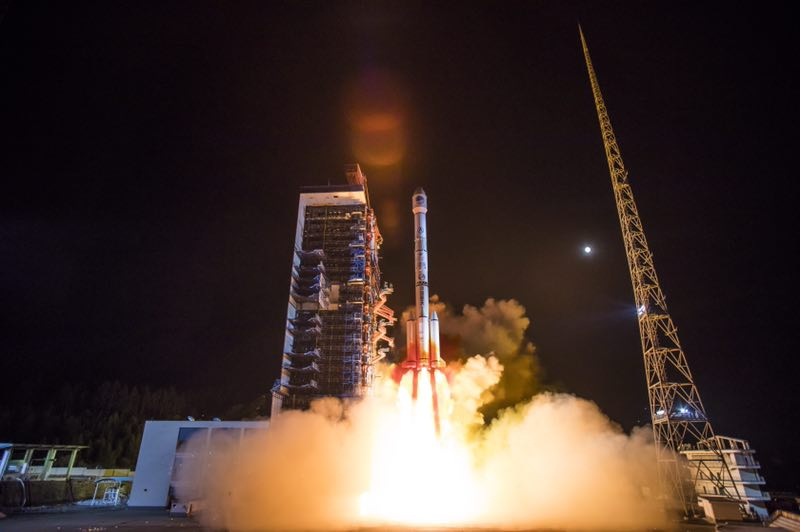
Photo by Shi Xiao from China Aerospace Science and Technology Corporation.
Photo by Shi Xiao from China Aerospace Science and Technology Corporation.
This milestone comes after the Long March carrier rocket series completed its 300th launch on March 10.
Meet the Ace team of China's carrier rocket family
The "Ace team," comprising the Long March-3A, 3B, and 3C, have been the launch vehicles for almost every Geostationary Transfer Orbit (GTO) over the years, setting a record for the shortest time interval of 16 days between two launches.

Infographic by Jie Qiong
Infographic by Jie Qiong
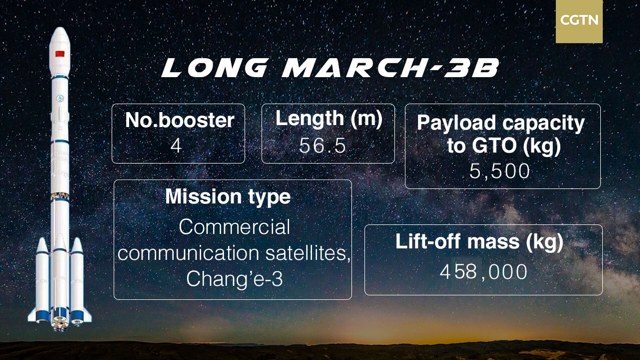
Infographic by Jie Qiong
Infographic by Jie Qiong
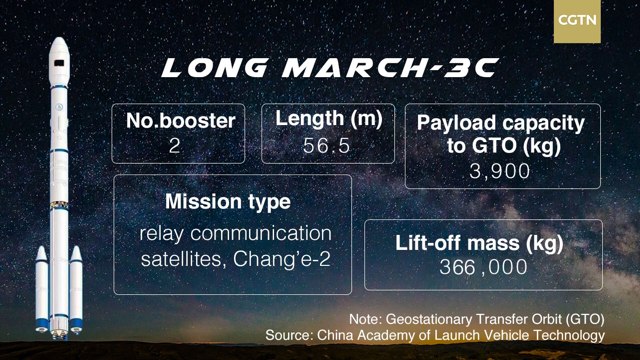
Infographic by Jie Qiong
Infographic by Jie Qiong
The three-staged Long March-3A is a cryogenic liquid rocket with a redesigned third-stage, serving as the basis of Long March-3B, and 3C.
Since its maiden launch on February 8, 1994, the Long March-3A has completed over 70 missions, with a 98-percent success rate
The 3B and 3C rockets were developed to meet the growing demands for heavy-lift launch missions by the global market.
According to Long Yuehao, senior consultant of Long March carrier rocket family in China Aerospace Science and Technology Corporation, the eco-propellent applied on the Long March 3A series' third stage made it able to stand out among its competitors.
Compared to the common N2O4 and UDMH liquid propellant applied on some of the carrier rockets, the propellent fueled by liquid hydrogen and oxygen gives the 3A series the edge of the stronger specific thrust, which means more thrust can be generated per unit of time.
From 0 to 100
It took 18 years for the Long March 3A series to complete the 50th launch, and only about seven years to accomplish the 100th, with a success rate up from 96 to 98 percent.
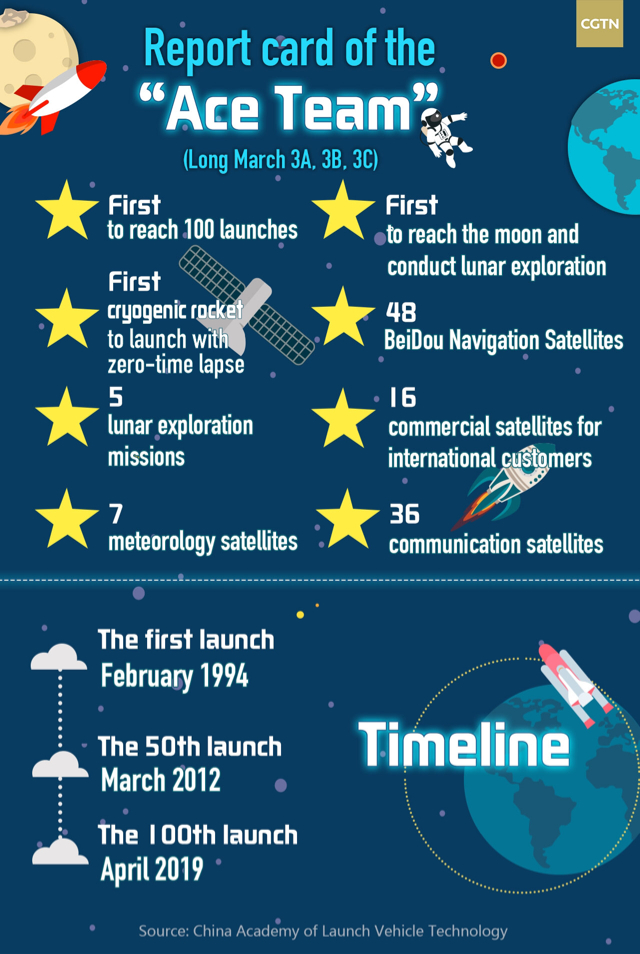
Infographic by Yin Yating
Infographic by Yin Yating
The annual manufacturing capability of the 3A series has been raised from around three to nine. The time interval between two launches has been shortened from 60 days to 21 days. What's more, the team responsible for the mission has halved from 300 to 150 people thanks to the mature production line and proficient operational flow.
(CGTN's Ning Hong also contributed to this story.)

SITEMAP
Copyright © 2018 CGTN. Beijing ICP prepared NO.16065310-3
Copyright © 2018 CGTN. Beijing ICP prepared NO.16065310-3